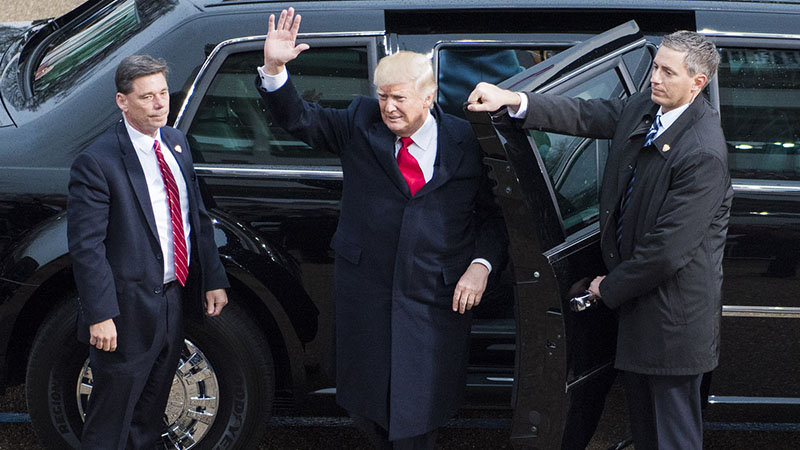“Wait and see,” was the refrain at the last UN climate talks in Marrakech, on the day Donald Trump was elected US president.
Negotiators hoped Trump’s threat to “cancel” the Paris Agreement was empty campaign rhetoric and his stance would soften in office.
No such luck. His first budget proposal, issued on Thursday, puts US money where his mouth is. It chokes off funds to the UN climate talks, Green Climate Fund and the Clean Power Plan that underpins the US contribution to international efforts.
By reneging on commitments made under Barack Obama, Trump’s stance undermines global cooperation, experts told Climate Home. Raising ambition in China and India just got harder to justify.
Laurence Tubiana, a key architect of the Paris deal, said: “It is a pity because the US will not be truthful to its commitments. That will certainly create a lot of diplomatic feedback.”
Eyes on Congress
The budget has to pass Congress, where 17 Republican lawmakers this week expressed their unease with the rollback of climate action.
“If left unaddressed, the consequences of a changing climate have the potential to adversely impact all Americans,” they said in a resolution.
A Gallup poll showed 45% of Americans worry “a great deal” about global warming, the highest level in three decades of tracking.
Businesses worth US$1.2 trillion urged Trump to rethink his stance in an open letter placed as an advert in several newspapers.
What’s beef?
Brazil’s new justice minister, who is responsible for formalising indigenous land rights, wants to do no such thing.
Osmar Serraglio sent shockwaves through the indigenous and environment movements by announcing a freeze on recognition of claims, reports our Latin America correspondent Fabiano Maisonnave.
His support for ranchers and farmers over Indian communities does not bode well for the rainforest, which tends to fare better in indigenous hands.
Man in Manila
The other strongman ruler who was threatening to opt out of the Paris Agreement has fallen into line.
Philippines president Rodrigo Duterte last year said he would “not honour” the deal, but thought better of it. A unanimous senate vote confirmed the country’s ratification on Tuesday.
“This accord is a manifesto for climate justice,” said senator Loren Legarda.
Trade winds
The Port of Amsterdam expects to be coal-free by 2030 as Europe shifts to cleaner energy sources, it revealed in its latest strategy paper.
Western Europe’s fourth largest port saw coal volumes fall 7.5% to 16 million tonnes last year and expects a further 29% decrease over the next five years.
Administrators are encouraging specialist recycling industries and investing in renewables in a bid to support the low carbon transition.
